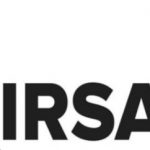Senior Advocate of Nigeria, Dr. Monday Ubani, has strongly criticized the lifetime flight ban imposed on Ms. Comfort Emmanson by the Airline Operators of Nigeria (AON), calling it unconstitutional, excessive, and lacking due process.
According to Ubani, the decision to bar Emmanson from flying on all Nigerian airlines violates her fundamental rights, especially since she was not given a chance to defend herself.
The ban comes in the wake of growing incidents of disruptive behavior by passengers on domestic flights.
In recent cases, popular Fuji musician Wasiu Ayinde Marshal, also known as Kwam 1, was handed a six-month no-fly sanction by the Nigerian Civil Aviation Authority (NCAA) and the Minister of Aviation. However, Emmanson’s punishment, reportedly imposed by AON, is a permanent industry-wide ban something Ubani believes goes far beyond what is legal or fair.
He referenced Section 36(1) of the 1999 Constitution, which guarantees every citizen the right to a fair hearing, and stressed that Emmanson was punished without being heard. He also cited Section 41 of the Constitution, which guarantees the right to freedom of movement within and outside Nigeria.
In his view, while a single airline can deny boarding for safety reasons, a lifetime ban across all airlines by a trade association effectively amounts to a national travel ban, which is outside AON’s authority.
Ubani emphasized that only the NCAA, which was created by the Civil Aviation Act, has the legal right to regulate civil aviation and enforce penalties. He argued that even in developed countries, no-fly lists are government-run, follow clear legal processes, and allow for periodic reviews and appeals—none of which appear to apply in Emmanson’s case.
He further noted that Emmanson has already been charged to court and is currently in custody awaiting trial for an offense that is, by law, bailable. Punishing her before the court decides the case, he said, is both premature and unjust.
Rather than taking matters into their own hands, Ubani advised that airlines should report such passengers to aviation authorities or the police and pursue legal charges under the country’s aviation or criminal laws. If necessary, a court order can be sought to restrict travel.
He concluded that any punishment that affects a person’s rights to such a serious extent must come through proper legal channels, not through decisions made by private associations. He warned that allowing groups like AON to act without oversight sets a dangerous precedent and undermines the rule of law. Ms. Emmanson, he added, is within her rights to challenge the ban in the Federal High Court and seek damages for the violation of her constitutional rights.


















